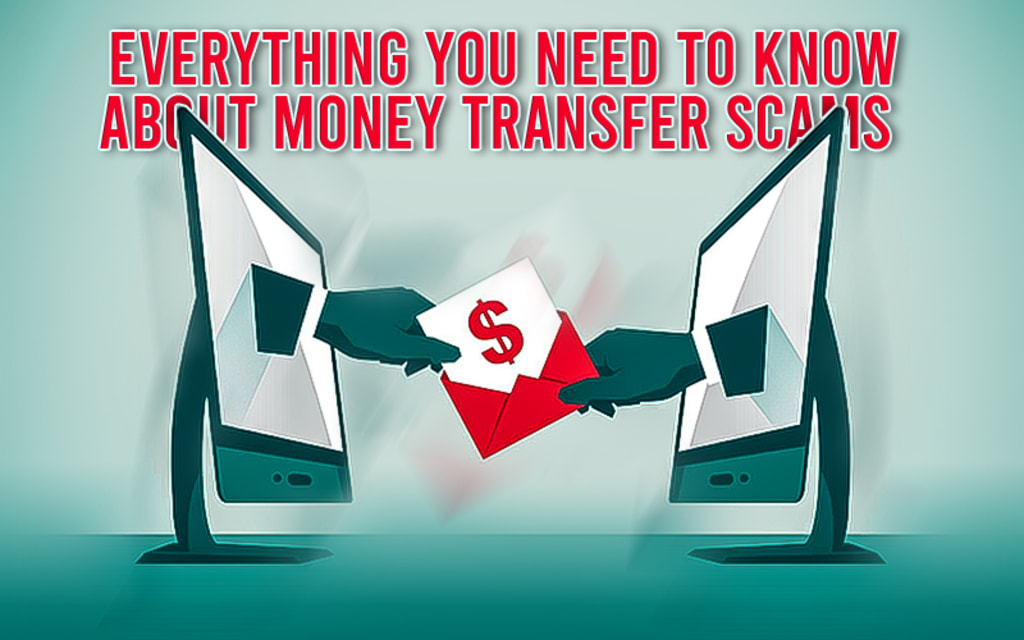Everything You Need to Know About Money Transfer Scams
All about Money Transfer scam

What is money transfer fraud?
The hoaxer will approach you through email, call, WhatsApp or SMS and entice you to enter malicious websites to make payments on a money transfer fraud.
These fake bank URLs will look almost identical to the original URL making it hard to recognize at first sight if you are not careful. Once you tap on the link, you will be redirected to a fake web page where it will ask you to provide your debit/credit card or net banking information to complete the transaction. They will steal all of your hard-earned money once they have your bank account information.
Different Types of Money Transfer Scams
The hoaxers use many different methods to commit money transfer scams. Common money transfer scams include:
Phishing
Phishing is a type of money transfer scam where fraudsters ask victims for personal information via email, like passwords and bank account data. In this form of money transfer fraud, phishers trick the victim into handing over sensitive information by acting as legitimate firms or imitating trusted contacts, such as the victim’s bank. This sensitive information can then be used to hack the victim’s bank account and make unapproved transfers into the fraudster’s account.
Lottery and Sweeps
In these kinds of money transfer scams, the victim is notified that they have won a lottery or sweepstakes and are asked to pay a fee in advance to receive the prize. This is also one the forms of advance fee cons. The 419 scam is another case of money transfer fraud that also falls under advance fee hoax.
Charity Money Transfer Scam
These money transfer scams refer to impostors posing as a fake charity and contacting unaware victims, pressing them to transfer money into the non-existent charity’s bank account as a ‘donation’.
Stranded Traveler
In this case, a fraudster hacks an email account and sends emails to everyone in the email address. These emails usually follow a common storyline, such as being trapped abroad and in need of a loan to help them get back after being mugged.
Online Dating
Here, the fraudster impersonates a potential love interest on an online dating site and obtains the trust of the victim. Once an emotional connection has been acquired, the fraudster asks the victim to transfer the money to help them.
Social Media
Young people are increasingly becoming prey on social media, being drawn into money transfer fraud and, by extension, money laundering by becoming money smugglers.
The fraudsters tend to victimize those under 25s with no criminal background and propose a ‘get rich quick’ arrangement whereby the victim consents to place funds in their bank account and follows instructions to wire it onwards in exchange for a payment. However, this is a technique fraudsters use to make illegitimate funds, making it more tough to trace.
Even if the mule is oblivious of what is going on, they are still committing a felony by letting their bank account to be used for fraudulent activity. It could result in up to 14 years in prison, but it also makes it hard to open a bank account in the future or to apply for a mortgage.
Money Transfer Scam Red Flags
In the US, the Federal Trade Commission (FTC) is dedicated to fighting money transfer scams. If you or someone you know has been a victim of fraud or a money transfer scam, you can report it to them.
To prevent any problems or even risking your money, here are several red flags to remember:
- They insist on communicating via email or phone calls.
- Communications contain misspellings or serious grammar errors.
- They want the money sent right away. For this, they frequently stage an emergency.
- The return email address is unusual or unknown.
- You get an unexpected paycheck.
- The requested amount is unusual or inconsistent with previous requests.
- You are unfamiliar with the recipient.
- You're being asked to pay with cashier's checks, wire transfers, or other possibly untraceable methods.
Identifying these red flags is a salient way to avoid money transfer scams. Of course, you can also take a few proactive measures to safeguard yourself.
These steps can prevent scammers from reaching you.
Tips to Avoid Money Transfer Scams
The following rules should be part of your permanent routine to avoid money transfer scams:
- Never hand out personal information on an unrequested call or message.
- Do not send money to anyone you do not know in real life.
- Don’t send large sums immediately if you feel you have to send money.
- Use reputable services that offer security protections.
- Install malware protection on your computer. Scammers may try to hack you to get personal data.
- Avoid sellers with low ratings or who refuse to accept credit cards or other identifiable payment methods.
- Disconnect and dial known phone numbers for banks or other businesses. Fraudsters attempting to steal money or commit identity theft can impersonate incoming phone numbers.
- Report the scam to a reliable fund recovery agency like Financial Fund Recovery and retrieve your lost funds.
About the Creator
Albert henry
Have you faced any scams or fraud online? I'm Albert and our company provides the best financial scam recovery and fraud services . Visit financialfundrecovery.com or contact me for more info.






Comments
There are no comments for this story
Be the first to respond and start the conversation.